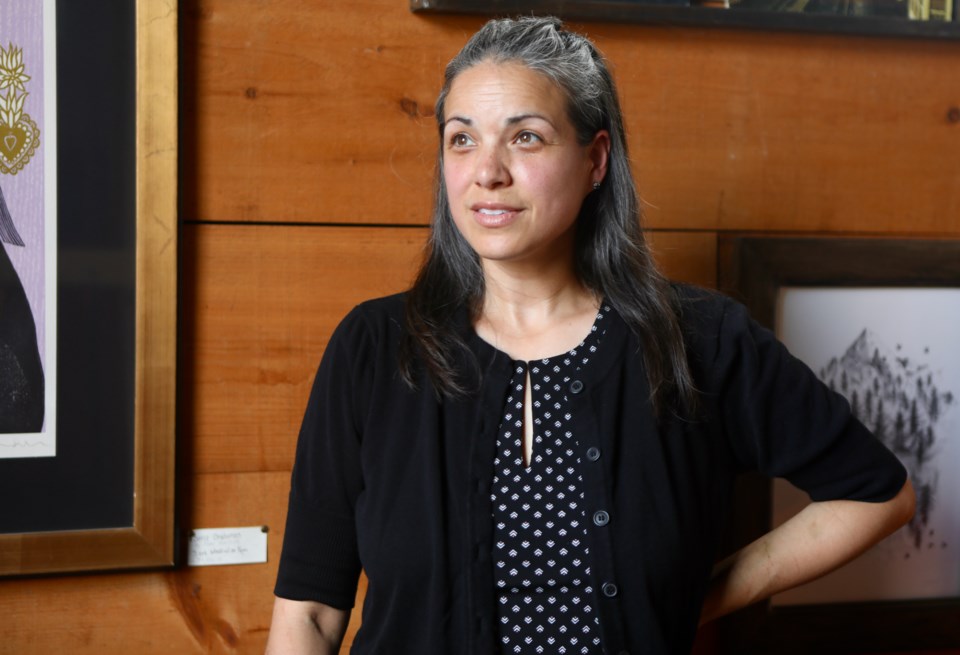ORILLIA — An Indigenous OPP officer who is off work with post-traumatic stress disorder says the Workplace Safety and Insurance Board (WSIB) ignored her request for culturally sensitive healthcare for a year, and she calls it racial discrimination.
"In August 2024, I asked my case manager if I could get an Indigenous mental healthcare provider, mainly a psychologist and occupational therapist," said Amanda Hill, a constable in Orillia, roughly 100 kilometres north of Toronto.
Traditional wellness and healing is an important part of First Nations health that is often overlooked by healthcare systems, Hill said.
"I told my case work that Indigenous people need a different kind of treatment, but she didn't seem to understand. She didn't say 'no,' but she also said I needed to find my own provider."
However, WSIB only accepts progress reports from WSIB-recognized health providers.
"WSIB had a list of healthcare providers, but none of them was Indigenous, so I asked if they had a list of Indigenous healt care providers and was told 'no,'" Hill said.
She said she was "dealing with discrimination and racism."
"There is no reconciliation."
A non-Indigenous psychiatrist and occupational therapist was provided for her, but under the care of the occupational therapist, Hill said she has had virtually no improvement.
"She doesn't understand me. I feel like there is a barrier between her and I, and I feel she is pushing me too hard when I need something that is culturally sensitive," said Hill.
Hill reached out to the Ontario Provincial Police Association (OPPA) and even wrote a letter to the OPP commissioner but was told by a staff member there was nothing they could do, she said.
"I was a little bit shocked. I was a bit discouraged that I was just left," she said. "I felt helpless."
When she still didn't have any WSIB-recognized Indigenous healers offered to her by June, she had a legal letter drafted and delivered to the WSIB. Paralegal Angelo Procopio, of WorkAid & Associates, cited Ontario Human Rights Code and Truth and Reconciliation Calls to Action violations.
The letter, headlined "Failure to facilitate Indigenous healing services in violation of equity," calls WSIB's response "passive non-accommodation."
The letter states Hill has "repeatedly requested access to culturally appropriate Indigenous-led healing services" and that those requests have "gone unfulfilled for nearly a year.
"While WSIB staff have verbally supported the idea, she was told that she must locate the agency herself and that no internal list or framework exists to assist Indigenous clients — an unacceptable burden and systemic barrier."
WSIB's own 2021 Reconciliation and Indigenous Inclusion Statement commits the board to support culturally relevant services and reduce barriers for Indigenous workers.
The Truth and Reconciliation Commission's Calls to Action 22 and 23 mandate inclusion of Indigenous healing practices in all public health systems.
Under the Ontario Human Rights Code, the WSIB is required to provide reasonable "accommodation on the basis of ethnic origin and culture," including traditional health practices.
The letter requests WSIB fulfil its obligations or face further measures.
A month later, when Hill had not received a response to the letter, she reached out to OrilliaMatters, which questioned the OPPA and WSIB.
On July 29, Scott Mills, strategic communications co-ordinator with the OPPA, responded by email, saying, "We are committed to supporting all our members and take matters of discrimination very seriously. We do not comment on the individual engagement or status of specific members within the association."
On July 30, Christine Arnott, public affairs manager with WSIB Ontario, responded by email, saying, "The WSIB is here to help people who experience a workplace injury or illness. With respect to mental health coverage, we are proud to be helping people through their work-related mental stress injuries by providing the services and support they need to return to work."
The email goes on to say that under the Mental Health Specialized Care Program, there is access to a traditional healer, who provides spiritual services, support and ceremonies, a room designated for smudging, and a traditional sweat lodge. These services are provided in Penetanguishene at Waypoint Centre for Mental Health Care, in Guelph through Homewood Health Centre and in Toronto through the Centre for Addiction and Mental Health. It also states clients outside of these geographic areas "may be able to receive some treatments online."
"We have been working with Const. Hill for some time, but for privacy reasons, we cannot provide detailed information on the Indigenous treatment options already offered to her," Arnott stated, suggesting Hill contact WSIB about her claim and treatment options.
Also on July 30, Hill emailed OrilliaMatters, saying, "WSIB is now actively accommodating my request now, and this Indigenous agency they are working with is WSIB-approved."
Hill said her home community is the Magnetawan First Nation. She grew up in Sudbury in a home where her family practised Indigenous "mind, body and soul" ceremonies, and that is what she understands and finds helpful. She said she wants to get healthy and get back to work in some capacity.
Hill started work as a front-line officer in 2011 with the Nishnawbe Aski Police Service in northern Ontario, where she served for four years before being hired by Orillia OPP in 2015. She was diagnosed with post-traumatic stress disorder in 2020, and she went off work and has been under the care of WSIB since then.
